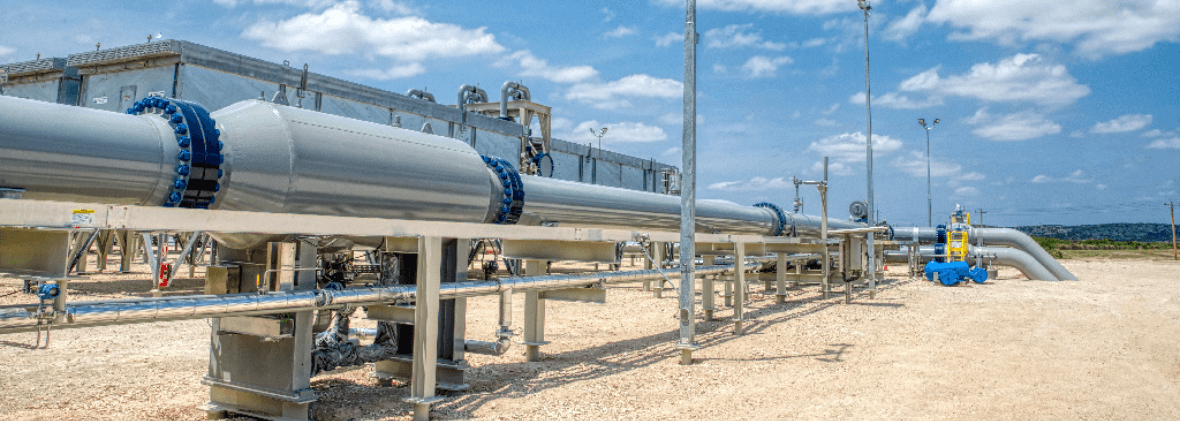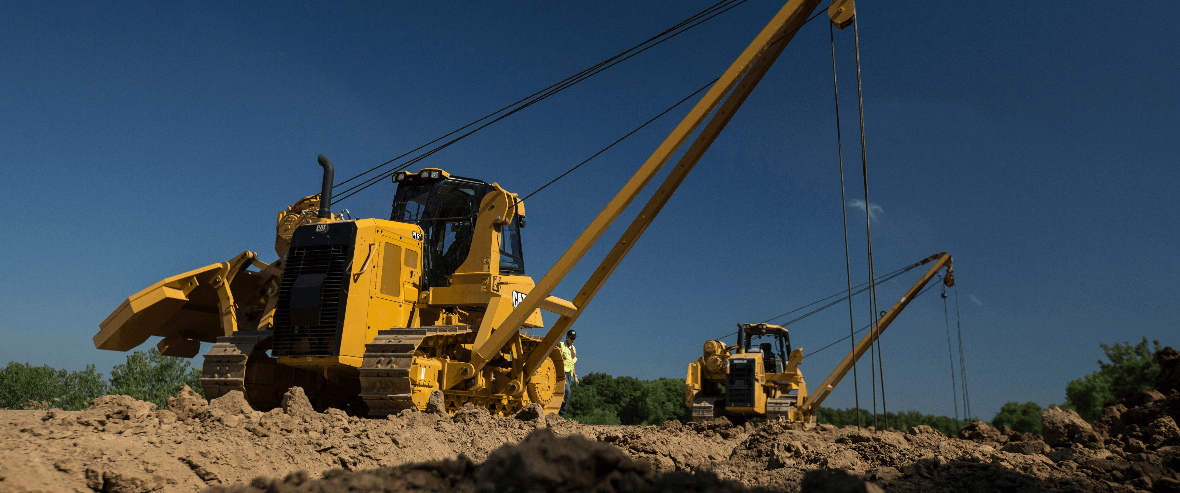Why experts recommend working with Superior Oilfield Rentals in large-scale drilling
A Comprehensive Guide to the Different Kinds of Oil Field Equipment and Pipeline Equipment Available
The oil and gas industry depends heavily on specialized devices for reliable removal and transportation. Numerous types of equipment, from drilling rigs to tank, play vital roles in this complex process. Each piece of equipment serves distinct functions that add to total functional success. Understanding these components is crucial for any person associated with the sector. As the industry develops, so as well do the modern technologies that support it. What advancements are on the horizon?

Drilling Rigs: The Backbone of Oil Expedition
Drilling rigs act as the essential equipment in the domain of oil exploration, making it possible for companies to accessibility hydrocarbon reserves buried deep under the Earth's surface area. These rigs can be found in different kinds, including land rigs, offshore rigs, and mobile systems, each made to run in specific settings. Equipped with sophisticated modern technology, piercing rigs can pass through geological formations with precision, making certain efficient resource removal. The architectural honesty and operational abilities of these rigs are essential, as they must stand up to severe conditions and significant stress. The option of an exploration rig affects the total project cost and timeline, making it an essential consideration for oil companies seeking to optimize their exploration initiatives and make best use of performance in their procedures.
Pumps: Essential for Fluid Activity
In the oil removal process, the duty of pumps is substantial, assisting in the motion of fluids throughout different stages of production. Pumps are necessary for delivering petroleum, water, and other liquids from below ground storage tanks to the surface and after that through pipes to refineries. They are available in different kinds, consisting of centrifugal, positive variation, and completely submersible pumps, each serving details functions based upon the fluid characteristics and functional needs. Centrifugal pumps are commonly made use of for their effectiveness in high-flow applications, while positive variation pumps stand out in dealing with viscous liquids. The choice of pump impacts total effectiveness, operational security, and maintenance costs. Correct choice and maintenance of pumps are important for optimizing manufacturing and lessening downtime in oil field procedures.
Shutoffs: Controlling Circulation and Pressure

Shutoffs play an essential duty in taking care of the flow and stress of liquids within oil fields and pipes. Numerous sorts of shutoffs offer distinctive applications, each designed to satisfy certain features fundamental for reliable procedure - Superior Oilfield Rentals oilfield. Understanding the qualities and uses these valves is important for optimizing system efficiency and safety
Sorts of Valves
Crucial elements in oil area procedures, shutoffs play an essential role in controlling the circulation and pressure of fluids within pipelines and devices. Numerous kinds of shutoffs are made use of to fulfill the diverse requirements of oil and gas production. Common types consist of gateway shutoffs, which supply a straight-line flow and minimal stress decrease; globe valves, known for their strangling capacities; and ball valves, acknowledged for their quick on/off control. Additionally, check shutoffs stop backflow, while butterfly shutoffs use a lightweight service for regulating flow. Each shutoff kind is developed with details products and arrangements to hold up against the severe problems commonly discovered in oil areas, making certain integrity and effectiveness in operations. Understanding these kinds is vital for efficient system monitoring.
Valve Applications and Functions
While various kinds of valves offer unique purposes, their key applications focus on managing circulation and stress within oil and gas systems. Valves such as gateway, globe, and sphere valves control liquid motion, guaranteeing peak efficiency and security. Gateway valves are generally used for on/off control, offering very little circulation resistance. Globe valves, on the various other hand, offer specific circulation regulation, making them suitable for strangling applications. Sphere shutoffs are favored for their fast procedure and limited securing capabilities. On top of that, stress safety valve are crucial for stopping system overpressure, protecting devices honesty. Overall, the proper option and application of valves improve functional performance, guaranteeing the reliable transport of oil and gas with pipes and handling centers.
Compressors: Enhancing Gas Transport
Compressors play a crucial function in the effective transportation of all-natural gas, ensuring that it relocates smoothly with pipelines over cross countries. These tools enhance the pressure of natural gas, enabling it to conquer rubbing and altitude changes within the pipeline system. Furthermore, compressors assist in the harmonizing of supply and demand, fitting changes in usage and manufacturing rates. Different types of compressors are utilized in the sector, including centrifugal, reciprocating, and rotary screw compressors, each offering unique advantages based upon the operational requirements. Routine upkeep of these compressors is essential to optimize performance and decrease downtime, inevitably adding to a trusted gas transport network. Their crucial function underscores the relevance of compressors in the total oil and gas facilities.
Storage Tanks: Safe and Effective Fluid Monitoring
Reliable transportation of gas relies on numerous support group, among which is the proper monitoring of tank. These storage tanks play a vital role in securely consisting of fluids, making certain that functional efficiency is maintained while reducing ecological dangers. Built from long lasting materials, they are created to stand up to high stress and destructive elements. Effectively sized and tactically situated, tank facilitate the smooth circulation of natural gas and various other liquids, stopping bottlenecks in supply chains. Routine maintenance and monitoring are essential to identify leaks or architectural issues, advertising safety and conformity with regulatory requirements. Ultimately, the efficient management of storage tanks is essential for the general honesty and dependability of the oil and gas sector's fluid handling systems.
Pipeline Equipments: Infrastructure for Transport
Pipeline systems work as the backbone of the oil and gas market, promoting the effective transport of hydrocarbons over huge ranges. These systems contain various elements, consisting of pipes, valves, pumps, and compressors, all diligently made to assure smooth circulation. The materials utilized in pipeline building, often steel or high-density polyethylene, are picked for longevity and resistance to corrosion. Pipeline networks can cover across land and water, attaching manufacturing sites to refineries and distribution centers. Additionally, progressed modern technology makes it possible for real-time tracking of flow prices and stress degrees, improving operational efficiency. The critical placement of these pipelines lessens ecological influence while maximizing source accessibility, thus playing a crucial duty in conference energy demands globally.
Safety Equipment: Ensuring Employee and Environmental Defense
The operation of pipeline systems, while vital for energy transportation, likewise provides significant safety obstacles for employees and the atmosphere. Safety tools plays a substantial function in minimizing these threats. Individual safety equipment (PPE) such as helmets, gloves, and non-slip footwear safeguards employees from physical hazards. In addition, gas discovery systems check for leakages, making certain that unsafe substances do not pose a threat to employees or the bordering ecological community. Emergency closure systems are imperative for swiftly halting procedures during a situation, stopping potential catastrophes. Spill containment products, consisting of absorbents and barriers, are essential for minimizing environmental influence. In general, purchasing all-encompassing safety and security equipment is important for maintaining functional honesty and protecting both employees and the setting in the oil and gas market.

Frequently Asked Questions
Just how Do I Pick the Right Oil Field Equipment for My Task?
Selecting the ideal oil area devices involves assessing project specifications, spending plan restrictions, and operational requirements. Consider variables such as devices dependability, compatibility with existing systems, and the provider's reputation to ensure peak efficiency and security.
What Are the Maintenance Needs for Oil Field Equipment?
Upkeep demands for oil area devices include regular examinations, lubrication, and prompt repairs. Operators needs to likewise stick to manufacturer guidelines, screen performance metrics, and assurance compliance with security regulations to boost longevity and effectiveness.

How Can I Ensure Compliance With Environmental Regulations?
To guarantee conformity with environmental laws, business need to conduct regular audits, implement best techniques, purchase training, maintain proper paperwork, and stay updated on legislation (Superior Oilfield Rentals oilfield). Collaboration with ecological companies can additionally enhance adherence to regulations
What Is the Ordinary Lifespan of Pipeline Equipment?
The ordinary life expectancy of pipeline tools normally ranges from 20 to half a century, depending on aspects such as worldly quality, environmental conditions, and upkeep practices. Routine evaluations can considerably affect long life and operational effectiveness.
Just how Do I Securely Transfer Oil Field Equipment to Remote Locations?
Delivering oil field devices to remote areas calls for cautious planning, consisting of course evaluation, safeguarding licenses, using suitable cars, and guaranteeing safety methods are adhered to. Correct training and communication amongst click here crews are necessary for successful transport.